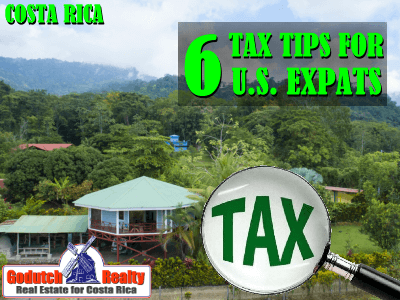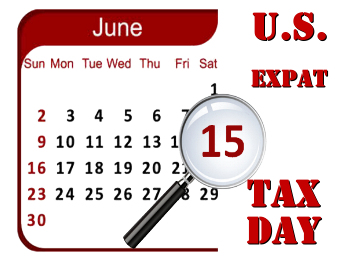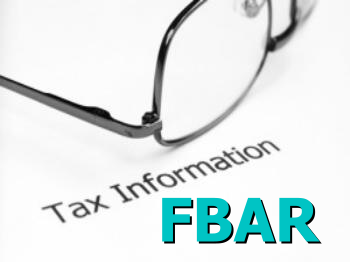Estimated Reading Time: 5 Minutes

If you’re an American expat, living in Costa Rica, you will love these 6 tax tips.
According to recent statistics, Costa Rica is one of the best countries to live in. It ranks in top positions when it comes to the happiest and greenest places. The tropical paradise combines magnificent nature and sustainable development, while its economy shows considerable expansion.
For American expats, there are different rules than for other foreign residents, this time demanded by the U.S. government.
If you are one of those lucky people that have the chance to live and work there, you should be aware of certain tax legislation that can affect your income status. Here are some tips for American expats that will help you go smoothly through the process.
1. Mark Your Calendar
The first of 6 tax tips is that you should remember that you have to file for tax returns every year in the U.S. and Costa Rica. The major differences between the two countries are their tax years. In the U.S. the period covers the months from January to December, while the tax returns for US expats are due June 15. You can ask for a 4-month extension. On the other hand, in Costa Rica, the tax year starts in October and ends in September.
2. Income Taxes
The second of the 6 tax tips is that the countries also differ in the income that is subject to taxation. While in Costa Rica, you’re taxed on the revenue earned in the country, even if you’re not a resident yet. The U.S, however, imposes taxes on the worldwide income to all American expats, despite their current residency.
In order to avoid the risk of double taxation, the Internal Revenue Service (IRS) offers different allowances. You can take advantage of the foreign earned income exclusion (FIEI). You are considered eligible if you are a resident of the host country and if your income is not above a certain limit.

3. Costa Rica Residency
The third of the 6 tax tips is that there are four types of residency in Costa Rica. Be aware that, even if you are a US citizen, you will have to pay local tax on income you have in Costa Rica. These are your options for residency here:
- Those with a family relationship in the country,
- Pensioner with a monthly pension equal to or above $1000,
- Rentista with a permanent income provided by a source outside of Costa Rica of $2500 or above,
- Investors, who put in $200,000 or more in a legal and approved sector of the country’s economy.
4. Social Security
The fourth of the 6 tax tips is that you are required to pay Social Security in Costa Rica. The contribution depends on the type of employment. If you are employed by someone else the tax will be 9.17% and if you are self–employed – 9.5%. Unfortunately, you will be required to pay into the social security systems of both your home and host countries.
5. FBAR
The fifth of the 6 tax tips is that you need to know about FBAR. Does FBAR sound to you like some bizarre word that describes something even more difficult to comprehend? It’s time to get familiar. The acronym stands for Foreign Bank Account Report.
In short, if you are a U.S. citizen, an expat, and you own an account that exceeds $10, 000 in a financial institution outside of your home country, you are required to pay taxes. This doesn’t include only people born in the U.S. Individuals with double citizenship, American residency, as well as corporation and other legitimate entities. This will be discussed in the next section.
Another tricky part is that the FBAR doesn’t examine each account separately but it takes their joint amount. For instance, if you have two accounts each of $6,000 they still are subject to taxation because together they exceed the limit.

6. Other Entities
The last of the 6 tax tips is that you are required to file for taxes if you own 10% or more of a corporation or partnership. If you are planning to create a corporation or other business entity, you should think about where it will make sense to do it.
Maybe you will receive tax benefits if you locate your business in Costa Rica, while in other cases it will make sense to register it in the U.S. In this case, you should take advice from a professional.
The Author
About the writer: Charlotte Madisson is a blogger and freelance writer from Sheffield, England. Expat herself, she is passionate about home, nature, and traveling. Choosing to work for a UK man and van company came naturally as she already knew that relocating your home means relocating your whole life to another country and found out that she could help people with it. She uses every free moment for sports or spending time with a book and a glass of wine. Currently, she writes articles on DIY topics for different home maintenance-related companies.
If you like this blog, subscribe to my newsletter by clicking the banner below.
I DO want to remind our readers that we appreciate any referrals you can send us. Also, remember GoDutch Realty when talking about your home in Costa Rica to friends and family. We appreciate it.

























